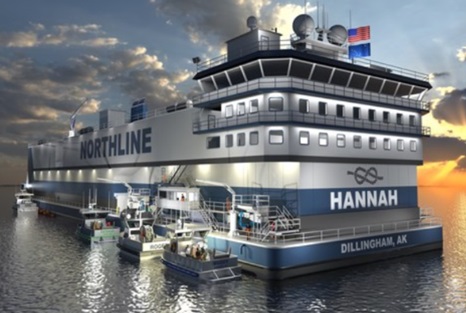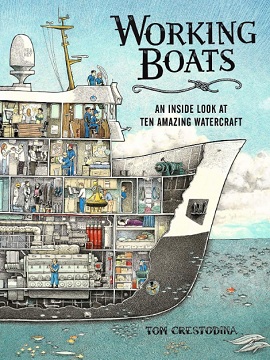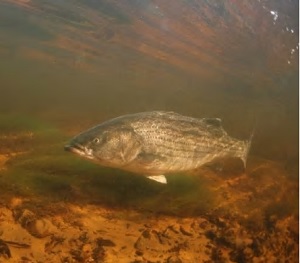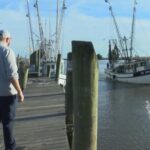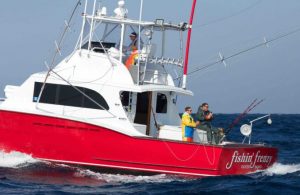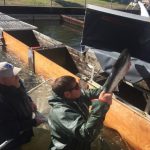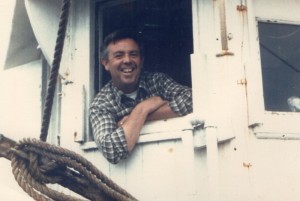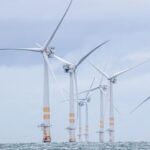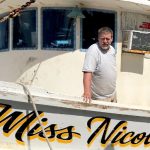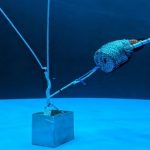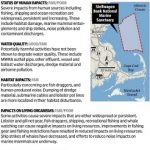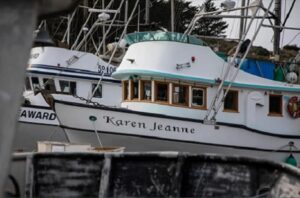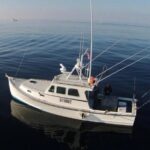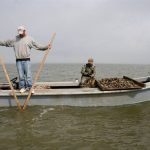Tag Archives: Bellingham
Tidal Vision, a company turning tossed crab shells into a green chemical, nets $140M in funding
Tidal Visio

Tidal Vision, a green chemistry company founded by a former Alaska fishing boat captain, has raised $140 million to fund its efforts, CEO and co-founder Craig Kasberg confirmed for GeekWire. The Bellingham, Wash., company uses an environmentally friendly, zero-waste process to turn discarded crab shells into a valuable industrial chemical called chitosan, as well as products made with the ingredient. In addition to its Bellingham operations, Tidal Vision has a production site in South Carolina and in July announced that it was breaking ground on a new plant in Texas where its Tidal Grow Agriscience division will produce liquid fertilizers. more, >>CLICK TO READ<< 15:12
Fire heavily damages fishing boat at Squalicum Harbor in Bellingham
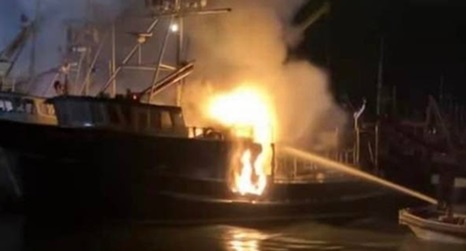 A 68-foot fishing boat was heavily damaged by fire early Sunday as it was moored in Squalicum Harbor. Bellingham’s fireboat the Salish Star is moored in the marina nearby and poured water on the blaze, Michaelis told The Bellingham Herald in a phone call. “The Salish Star made the initial attack and its crew was able to get it mostly out,” he said. The boat, called the Alaskan Girl, suffered heavy damage to the top deck, cabin and galley, Michaelis said. It remained afloat. more, >>CLICK TO READ<< 12:51
A 68-foot fishing boat was heavily damaged by fire early Sunday as it was moored in Squalicum Harbor. Bellingham’s fireboat the Salish Star is moored in the marina nearby and poured water on the blaze, Michaelis told The Bellingham Herald in a phone call. “The Salish Star made the initial attack and its crew was able to get it mostly out,” he said. The boat, called the Alaskan Girl, suffered heavy damage to the top deck, cabin and galley, Michaelis said. It remained afloat. more, >>CLICK TO READ<< 12:51
Tidal Vision, a startup turning crab shells into a green industrial chemical, is raising fresh cash
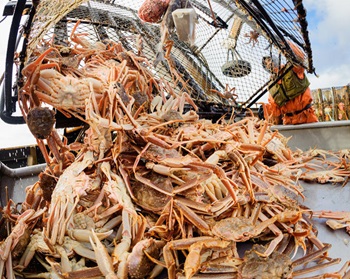 Tidal Vision, a green chemistry company founded by a former Alaska fishing boat captain, is raising more investment to fuel growth. A new SEC filing reveals $46.7 million in fresh cash. We reached out to the company for comment on the filing. Tidal Vision uses an environmentally friendly, zero-waste process to turn discarded crab shells into a valuable industrial chemical called chitosan. The material is something of a wonder ingredient and can be used in water purification, to preserve produce, to promote plant growth, as a flame retardant in fabrics, and in pharmaceuticals and cosmetics. It offers a safe alternative to toxic chemicals, metals, petroleum products and pesticides used in industry. more, >>CLICK TO READ<< 07:30
Tidal Vision, a green chemistry company founded by a former Alaska fishing boat captain, is raising more investment to fuel growth. A new SEC filing reveals $46.7 million in fresh cash. We reached out to the company for comment on the filing. Tidal Vision uses an environmentally friendly, zero-waste process to turn discarded crab shells into a valuable industrial chemical called chitosan. The material is something of a wonder ingredient and can be used in water purification, to preserve produce, to promote plant growth, as a flame retardant in fabrics, and in pharmaceuticals and cosmetics. It offers a safe alternative to toxic chemicals, metals, petroleum products and pesticides used in industry. more, >>CLICK TO READ<< 07:30
Commercial Fisherman Peter Allen Zuanich of Anacortes, Washington has passed away
 Peter Allen Zuanich was born September 3, 1946, in Bellingham, Washington. He passed away peacefully on November 24, 2023, in Oak Harbor, Washington, with his wife, Kimberly, by his side. Peter graduated from Bellingham High School and Central Washington University. Though he graduated with a degree in business, he ultimately followed in his father’s wake, working for many years as the owner and captain of commercial fishing vessels along the coasts of Alaska and California. A celebration of life will take place at 1pm on Sunday, Jan. 7, 2024, at The Boathouse in Zuanich Point Park. more, >>click to read<< 08:05
Peter Allen Zuanich was born September 3, 1946, in Bellingham, Washington. He passed away peacefully on November 24, 2023, in Oak Harbor, Washington, with his wife, Kimberly, by his side. Peter graduated from Bellingham High School and Central Washington University. Though he graduated with a degree in business, he ultimately followed in his father’s wake, working for many years as the owner and captain of commercial fishing vessels along the coasts of Alaska and California. A celebration of life will take place at 1pm on Sunday, Jan. 7, 2024, at The Boathouse in Zuanich Point Park. more, >>click to read<< 08:05
Bellingham’s shoreline history: A boom, bust of resource extraction
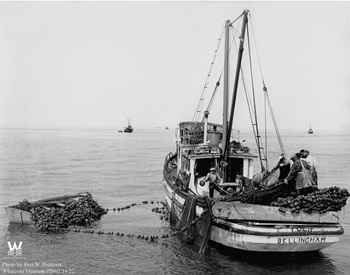 By 1890, the U.S. Census estimated approximately 18,500 people lived in Whatcom County. In the years that followed, additional lumber mills popped up. These included the Puget Sound Mill at the mouth of Padden Creek, the E.K. Wood Mill at Boulevard Park, and the Whatcom Falls Company (Loggie Mill) off Whatcom Creek. Pacific American Fisheries (PAF) first appeared in 1899 to process local salmon, eventually establishing the largest canning operation in the world. Both industries attracted large numbers of Asian immigrant workers, leading later to a significant shift in culture — along with significant racist worker backlash — in the region. The rich salmon runs also attracted canners and fishermen from Croatia, Finland and Ireland. Photos, >>click to read<< 09:20
By 1890, the U.S. Census estimated approximately 18,500 people lived in Whatcom County. In the years that followed, additional lumber mills popped up. These included the Puget Sound Mill at the mouth of Padden Creek, the E.K. Wood Mill at Boulevard Park, and the Whatcom Falls Company (Loggie Mill) off Whatcom Creek. Pacific American Fisheries (PAF) first appeared in 1899 to process local salmon, eventually establishing the largest canning operation in the world. Both industries attracted large numbers of Asian immigrant workers, leading later to a significant shift in culture — along with significant racist worker backlash — in the region. The rich salmon runs also attracted canners and fishermen from Croatia, Finland and Ireland. Photos, >>click to read<< 09:20
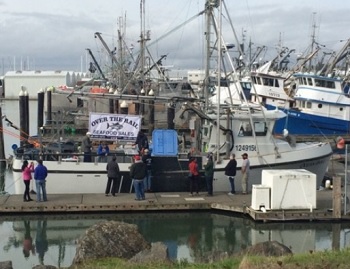
Crew Connections to provide commercial fishing networking on March 18
Commercial fishing vessel captains and owners will be recruiting new crew members to help with the summer fishing season from 11 a.m. to 2 p.m. Saturday, March 18 at Bellingham Dockside Market. Those interested are encouraged to bring their resume and ask questions. Whatcom Working Waterfront Coalition and Foundation is hosting the networking event, Crew Connections, in partnership from the port of Bellingham and Bellingham Dockside Market. Crew Connections will take place at the Fishermen’s Pavilion, 2599 S. Harbor Loop Drive in Bellingham. >click to read< 12:55
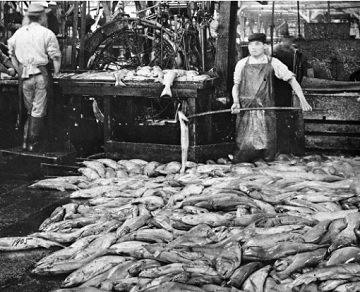
The Rise and Fall of Pacific American Fisheries: Fairhaven’s Historic Salmon Cannery
Before becoming part of Bellingham, Fairhaven grew up along railway lines. The town boomed with the region’s industries — fishing, lumber, and mining — into the 1870s, seeking the Northern Pacific Railway terminus. After the railway instead went to Tacoma, in 1873, multiple economic panics drove Fairhaven into a depression by the 1890s. However, Fairhaven soon found economic revitalization in what would become the largest salmon cannery in the world: Pacific American Fisheries. Whatcom County’s early settlers viewed the salmon crowding every stream as an almost inexhaustible resource. Fisheries would prepare salmon fresh, dried, salted, or smoked, but turned most into hog feed and fertilizer. Whatcom County had 11 large canneries by 1899, but many shuttered within years due to mismanagement. >click to read< 18:10
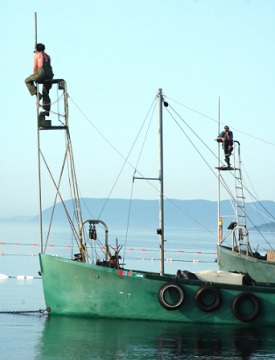
On the Puget Sound, the Women Whose Lives and Work Revolve Around Salmon
In the town of Bellingham, Washington, everyone knows when the salmon run come fall. Shimmery silvers and chum salmon break the chilly water’s surface with their heads, as they move through the Puget Sound and tributary rivers to their spawning grounds. Locals buzz, telling one another when they’ve seen them, admiring the fish on their journey. But for Ellie Kinley, this isn’t just a fall spectacle. She thinks about these fish 365 days a year. There’s a strong and sometimes overlooked community of fishing families here. The Lummi have the largest tribal fishing fleet in the nation, according to Kinley; the port is also home to fishing families, native and non-native alike, who use Bellingham as their home base between fishing trips to Alaska and California. Photos, >click to read< 17:44
Bellingham Washington selects seafood festival as its newest signature event







 In the first conversation Grant Fishbook had with Andy Vitaljic more than a decade ago, Andy surprised the Christ the King Community Church pastor by saying he wanted his tombstone to read, “Andy fed the hungry.” The third-generation Croatian fisherman, who built a commercial seafood empire in Whatcom County and died at the age of 91 in September 2024, got his wish. Andy may be best remembered for his tireless efforts to help people in need, and his mausoleum inscription reflects that. Fishbook said Andy was one of the most generous humans he’d ever met — a compliment that extends to his widow, Erin. “The Vitaljics have their names attached to all kinds of humanitarian organizations around the county,” he said. “Andy was the brain and heart and passion and Erin was the organizer who made sure the ideas actually became real.” Now, Erin is looking for a successor to the empire Andy spent five decades building.
In the first conversation Grant Fishbook had with Andy Vitaljic more than a decade ago, Andy surprised the Christ the King Community Church pastor by saying he wanted his tombstone to read, “Andy fed the hungry.” The third-generation Croatian fisherman, who built a commercial seafood empire in Whatcom County and died at the age of 91 in September 2024, got his wish. Andy may be best remembered for his tireless efforts to help people in need, and his mausoleum inscription reflects that. Fishbook said Andy was one of the most generous humans he’d ever met — a compliment that extends to his widow, Erin. “The Vitaljics have their names attached to all kinds of humanitarian organizations around the county,” he said. “Andy was the brain and heart and passion and Erin was the organizer who made sure the ideas actually became real.” Now, Erin is looking for a successor to the empire Andy spent five decades building. 